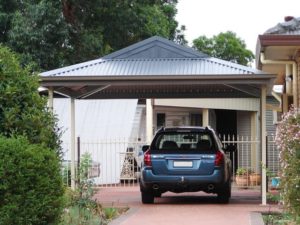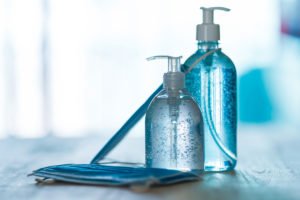Work From Home & Travel Expense Claims
The ATO has urged all taxpayers that personal expenses, such as coffee, tea and toilet paper are not directly related to earning income and cannot be claimed by taxpayers who were forced into work from home arrangements since the COVID pandemic hit Australian shores.
Other expenses that cannot be claimed include, expenses related to a child’s education, such as online learning courses or laptops as well as large upfront costs. The ATO informs taxpayers that any asset over $300, like a computer, can’t be immediately claimed and should instead be depreciated over a number of years. Furthermore, home expenses such as land tax, rates, rent, mortgage interest and property insurance generally can’t be claimed. Whilst many have been thrust into working from home, “Working from home does not make a taxpayer’s home a place of business for tax purposes” according to the ATO.
The temporary shortcut method, which in January was extended to 30 June this year, allows taxpayers to claim a fixed rate of 80 cents an hour for all running expenses incurred as a result of working from home, as opposed to calculating costs for specific expenses.
“The shortcut method is straightforward; just multiply the hours worked at home by 80 cents,” said Tim Loh, assistant commissioner at the ATO. “The only proof you need is a record of the number of hours you’ve worked from home, such as a timesheet.” The importance of records is key, so if you do not log timesheets, diary records would be advisable. Taxpayers should even consider talking to their employer to provide written evidence (such as a letter from the employer) outlining that they were required to work from home. In our recent discussions with the ATO, it was surprising to learn that the ATO may ask for such evidence from an employer. Even though that guidance on the ATO website does not specifically outline this type of evidence required when using the shortcut method.

Electricity for lighting, cooling, heating and the running costs of electronic items such as phones and internet are all included in this shortcut method. Depreciation of various items such as computers, laptops, home office furniture and other household fixtures that are subject to wear and tear as a result of working from home arrangements are also included in the 80 cents an hour shortcut method. The catch is that the shortcut is all-inclusive, meaning it can’t be supplemented by additional, individual expense claims on items like phone and internet costs and other depreciation claims on items like furniture and laptops.
“If you decide to go with an existing method, I would encourage you to do your research and keep good records,” Mr Loh said.
“Keeping track of each individual expense and calculating the work-related use of each one can be fiddly, so be organised. “So, make sure you’ve read the guidance on our website or chat to your registered tax agent.”
Lastly, we urge clients and taxpayers to review how they claim motor vehicle and travel related expenses. This will be another further area of focus by the ATO due to the change in working patterns experienced by the pandemic.

Log books for motor vehicles will need to be reviewed, as any significant changes in the use of a motor vehicle for work purposes, requires a taxpayer to review or redo a new log-book. Just because you are working from home, this also does not mean that your home is a place of business. So if a taxpayer is thinking of claiming a deduction for having to travel from home to the usual office – think again.
When in doubt, contact our team to ask further questions or to get assistance with any tax time queries.
Contact our team to ask further questions or to get assistance with any tax time queries.
Copy and Paste Expense Claims
The ATO has warned taxpayers that it will set its sights on ineligible work-related expense claims come tax time, issuing expense advice to those planning to make claims related to working from home, personal protective equipment, clothing and laundry, self-education, car and travel expenses.
“While it’s good to see most people have been doing the right thing, our data analytics will be on the lookout for unusually high claims this tax time,” said Tim Loh, assistant commissioner at the ATO. The analytics the ATO are referring to is benchmarking specific occupation codes on an individual’s tax return with other taxpayers in the same occupation around Australia. Then using this information to compare the average deductions claims for those occupations and benchmarking for any claims you may make in your tax return.
“Particularly where someone’s deductions are much higher than others with a similar job and income. We will also look closely at anyone with significant working-from-home expenses that maintains or increases their claims for things like car, travel or clothing expenses”
“You can’t simply copy and paste previous year’s claims without evidence. But we know some of these unusual claims may be legitimate. So, if you explain your claim with evidence, you have nothing to fear.”
An incredible $19.4 billion in work-related expenses were claimed in the 2020 income year by 8.5 million Australians, with travel and car expenses dropping nearly 5.5 percent. The value of clothing expense claims saw an increase of about 2.6 percent which was largely due to frontline workers facing first-time expenses such as masks and sanitiser. The ATO provided this data and said that work-related expenses are expected to spike for the 2021 income year. However, taxpayers should be aware that some expenses, like travel, might not be eligible.
“We know many people started working from home during COVID-19, so a jump in these claims is expected,” Mr Loh said. “But, if you are working at home, we would not expect to see claims for travelling between work sites, laundering uniforms or business trips.

For taxpayer’s occupations that require them to come into physical contact or close proximity to customers or clients, items like gloves, face masks, sanitiser and anti-bacterial spray may be claimed as work-related expenses. However, to claim PPE, a taxpayer must have used the items(s) for work and paid the upfront cost themselves, the ATO said.

